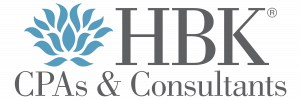 Let’s look at the benefits of adding or upgrading construction software. The ability to install advanced technology and software that improves efficiency and delivers conveniences to a home or commercial building is fast becoming a requirement for builders. So why wouldn’t a construction company add construction software to improve its efficiency and add operational conveniences?
Let’s look at the benefits of adding or upgrading construction software. The ability to install advanced technology and software that improves efficiency and delivers conveniences to a home or commercial building is fast becoming a requirement for builders. So why wouldn’t a construction company add construction software to improve its efficiency and add operational conveniences?
Download Printable Article (PDF) >>>
Construction software can support many aspects of a project, including:
• Estimating
• Scheduling
• Bidding
• Project management
• Accounting and project reporting and evaluation
The small contractor or startup might use an Excel spreadsheet to accomplish some of these tasks. Excel is commonly a go-to solution for a small firm not yet ready to consider adding industry-specific software. In
many cases, small contractors know there are inexpensive software programs in the market, but might be concerned about spending hours learning programs that might or might not work for them. But as the small contractor becomes better known and is being sought after by potential clients, or to provide their niche expertise to larger contractors, that growth, which typically includes adding employees and doing more on-the-go management, will require more sophisticated software than Excel. They will either need to evaluate and buy new software or if they are already using industry-specific software, perhaps upgrade to a more robust program or package.
Adding New Construction Software
A first step to adding or upgrading construction software involves getting the input of those who will use the software. Nothing spells disaster in implementing new software like failing to get users’ input. The company needs user buy-in; in many cases, the consulted users become the champions of the software and contribute to successful, company-wide implementation. The company should also consider a realistic timetable for implementation, and champions of the software may be able to help there as well. Finally, the company must ensure there is adequate training for everyone expected to use the software. Letting employees figure out the software on their own is another potentially disastrous oversight. Without proper training, users tend to revert to their old ways or old software, to gravitate to what feels most comfortable to them.
A contractor should also consider portability and how easily the new software can be integrated with existing software or other new software they will be adding. Superintendents and project managers in the field want timely access to project information. Having information at their fingertips on a tablet or cell phone allows for more efficient project reviews or change orders than having to call back to the office, or worse, wait until they get back to the office. Change orders not created in a timely manner can add unrecoverable project costs. Integration with existing software is key to successful implementation. The efficiency of a new software product will be compromised if employees have to manually transfer information among other existing or new software programs.
Accounting Software Capabilities
Accounting software should be able to produce data such as financial information or a work-in-progress schedule easily so management can evaluate performance in a timely manner and projects to be finished or already completed. These issues are often overlooked because the contractor is more concerned about operational software or considers accounting software as needed only for compliance reporting. However, when a bank or surety needs information to decide on a loan or bond, making them wait for financial information could delay financing or issuance of a bond, either of which could cost the contractor the project. And how can the management evaluate company performance for a quarter or at year-end if financials and work-in-progress schedules are produced three to six months after the reporting period?
Stale financial information can cripple a company when problems are discovered too late to efficiently implement changes. Finding the right software that meets the contractor’s needs can take time and energy but will ultimately save a great deal more of both.
About the Author(s)
Richard P. Mishock, CPA
Rich is a Principal in HBK’s Stuart, Florida office. He began his public accounting career with HBK in our Salem office upon graduation from Slippery Rock University in 1995. He transferred to Florida in 1998. Rich is a licensed CPA to practice in Florida and Pennsylvania. He has extensive experience in the areas of financial reporting, taxation, business consulting, and audit & assurance. He provides accounting, tax, and consulting services to individuals as well as a wide-range of industries including construction, real estate, manufacturing, wholesale distribution, professional firms, and non-profit organizations.
About HBK Construction Solutions Group
At HBK, our Construction Solutions is comprised of dedicated team members devoted to keeping pace with industry changes impacting your business and in turn providing you and your company with strategies and
solutions customized to fit your unique needs.



